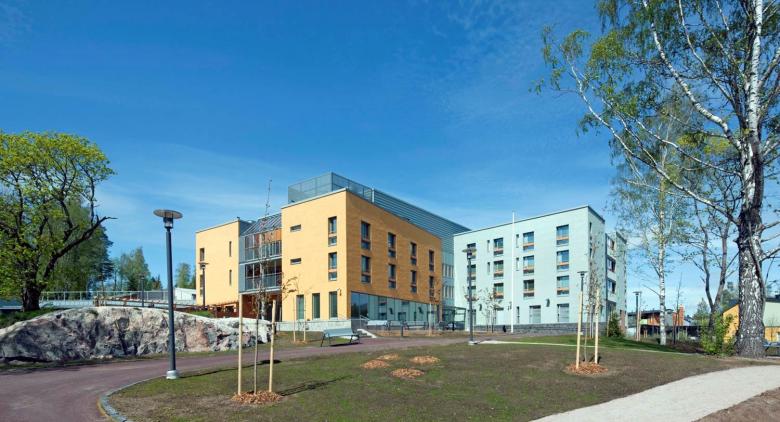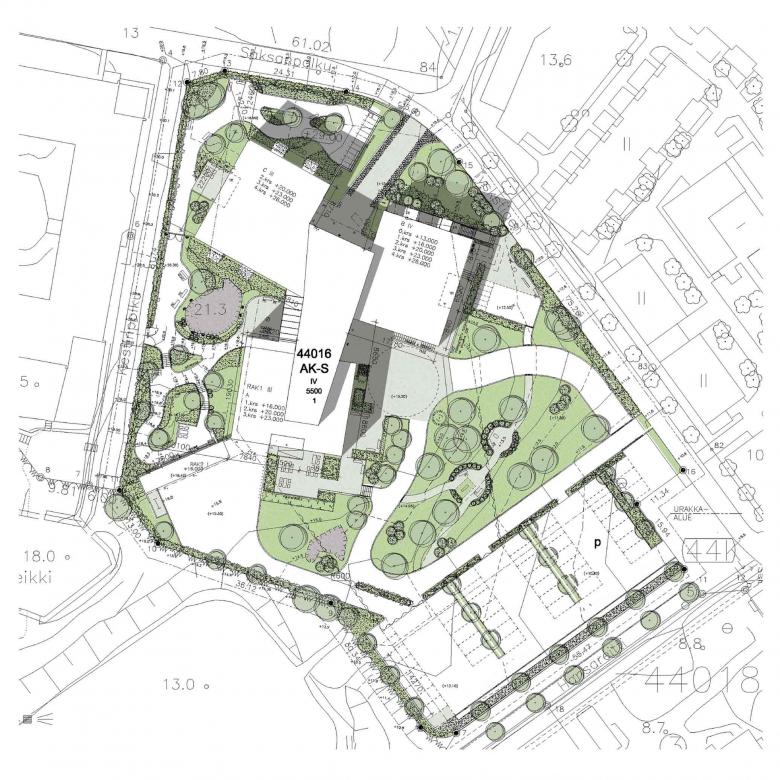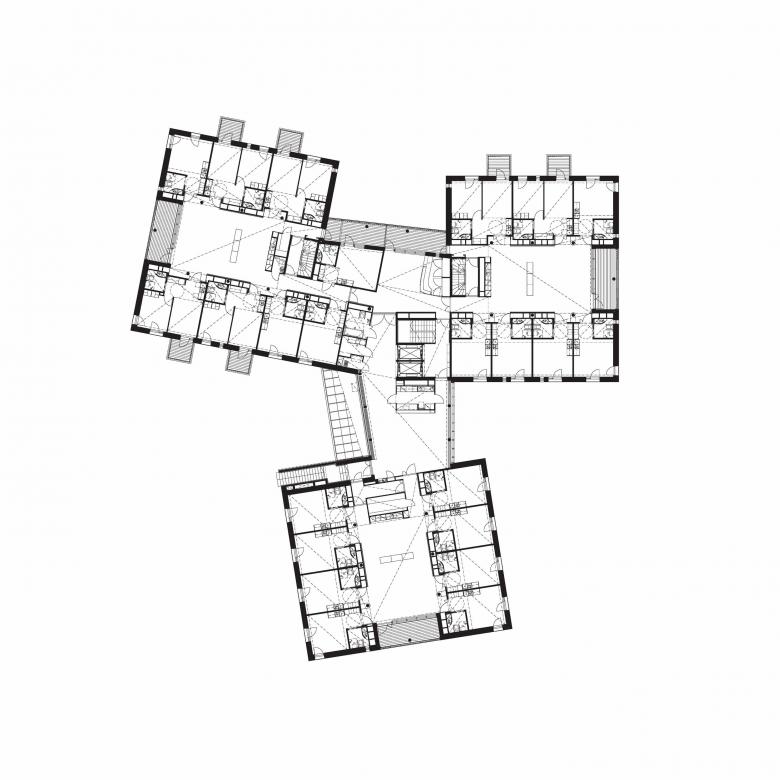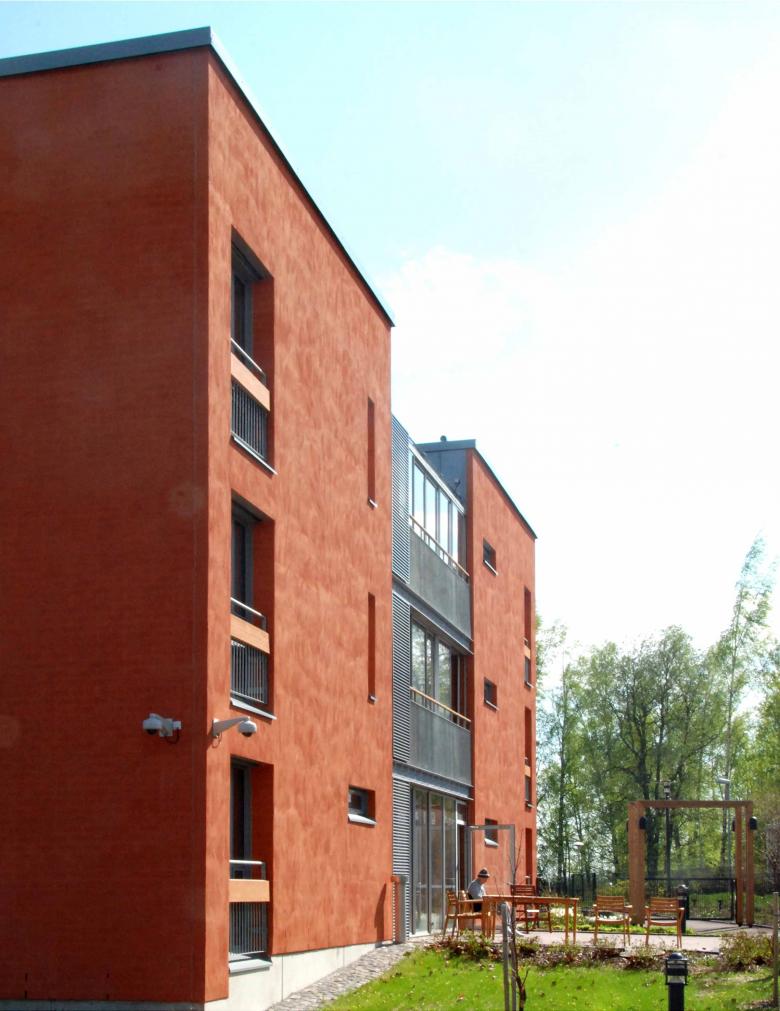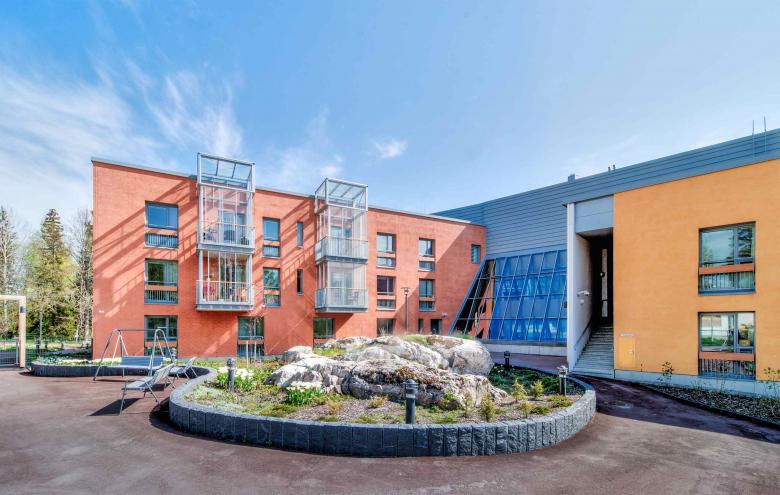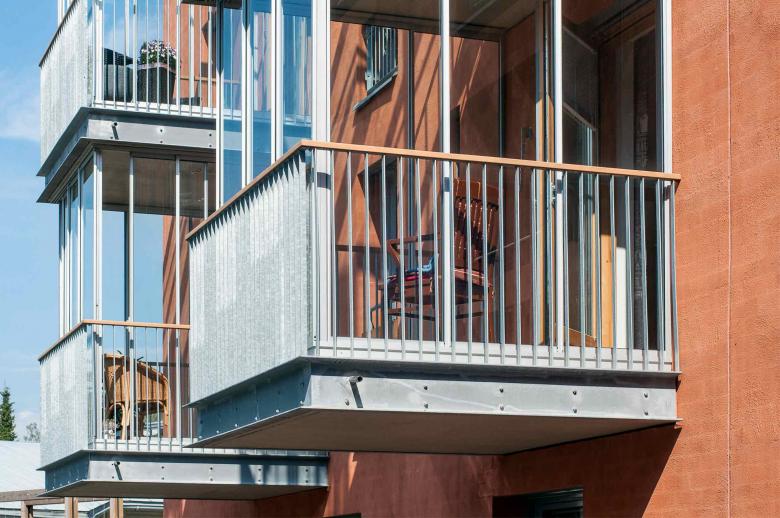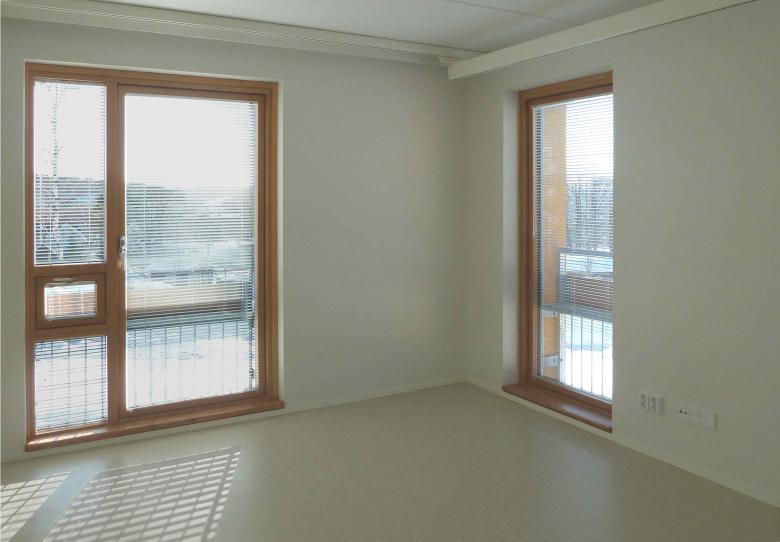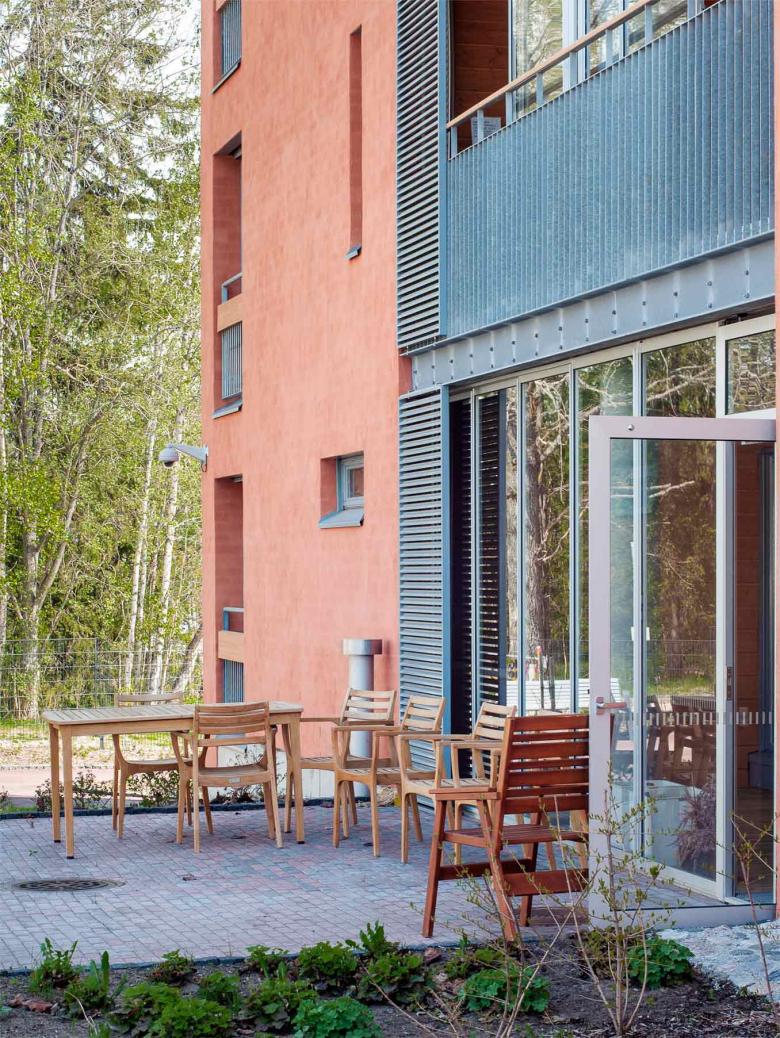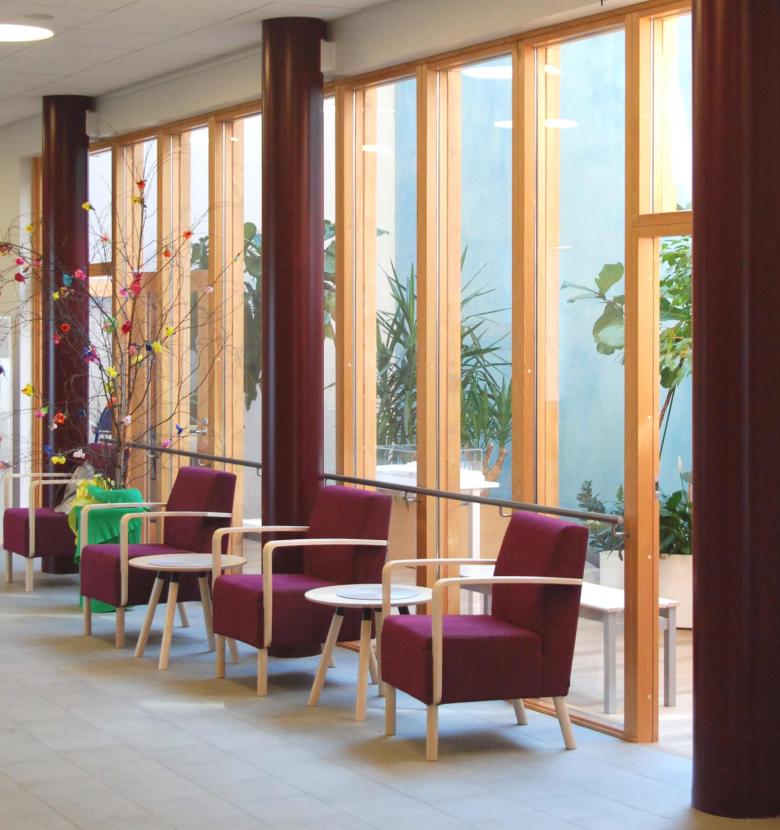Kauklahti Senior Centre
Espoo, Finlande
- Architectes
- Kirsti Sivén & Asko Takala
- Lieu
- Hansakartano 4, 02780 Espoo, Finlande
- Année
- 2012
- Équipe
- Kirsti Sivén, Asko Takala, Päivi Anttila, Kaisa Savolainen, Alex Torres, Stefan Vara, Emmi Kesisarja, Tuula Nurmi, Kristiina Timonen, Nina Vauhkonen, Tatu Pärssinen, Riku Rönkä, Tiina Paasonen, Heidi Turunen, Gerrie Bekhuis, Markku Hietamaa, Jonas Malmberg, Taito Heino, Ilpo Muraja, Sandra Boman
Kauklahti Living and Dwelling Centre for the Elderly is the first built example of a new service-home concept. The centre offers local senior citizens a public living room with various services; meals, exercise and pastime activities. The dwellings are for the elderly who need 24/7 care. The environment is designed to be easy to use in order to encourage residents’ autonomy. The rooms look like homes despite the many assistive devices.
The dwellings are clustered around a light-filled and spacious living room with a balcony and a kitchen. The corridors are minimized to make both physical and social accessibility easy for the residents. The ground floor contains the service centre; a restaurant, a gym with a sauna and communal rooms for recreational activities, as well as a winter garden.
The cluster concept assists in situating this large building into the small scale of the neighbourhood and the rocky terrain. The building consists of three cubic volumes and a connecting circulation joint with the main staircase and lifts. The colours refer to the colours of the surrounding housing.
The uneven terrain was demanding, however, it provided opportunities for landscaping. Due to the slope, residents have access to courtyards from different floors of the building and semi-underground spaces get natural lighting.
The project contains various advanced techniques; for the residents as well as for the building. For example, rooms have a smart floor system for unobtrusive monitoring, security checks and alerts. The energy solutions are based on using geothermal energy in an innovative way. The building obtains 50% of its energy for heating and cooling from a renewable source, resulting in low carbon emissions. Making use of innovative, affordable, and efficient structural solutions also contribute to reducing maintenance costs.
Projets liés
Magazine
-
Winners of the 5th Simon Architecture Prize
4 days ago
-
2024, The Year in …
6 days ago
-
Raising the (White) Bar
6 days ago
-
Architects Building Laws
1 week ago
